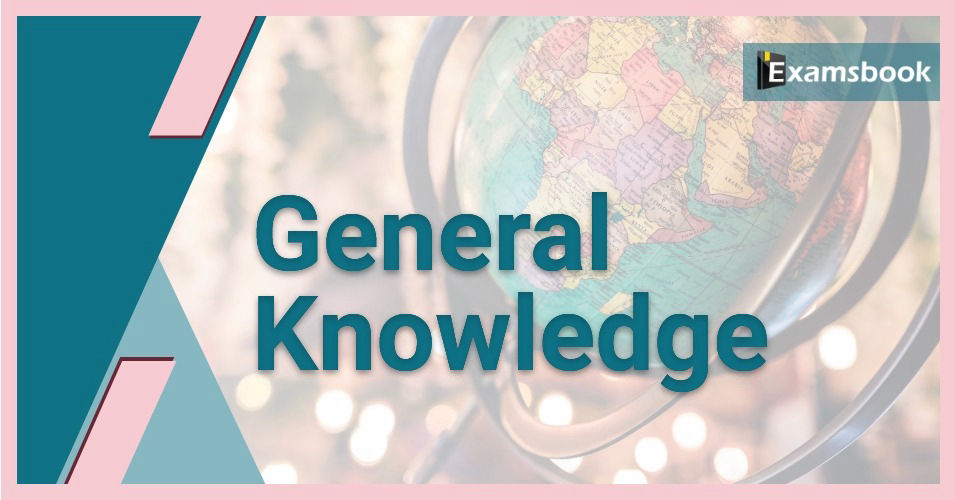General Knowledge (GK) 2023-24: GK Questions, Topics, Mock Test, Practice Quiz

Christian Missionaries were allowed to spread their religion in India, under the Act ?
(A) Pitts India Act of 1784
(B) Charter Act of 1813
(C) Charter Act of 1833
(D) Charter Act of 1853
Correct Answer : B
Which of the following statement is incorrect about Habeas Corpus?
(A) It reviews the legality of the prisoner ' s imprisonment .
(B) It was originally a part of the English system of civil liberties
(C) Only the detained person can apply for the writ
(D) All are correct
Correct Answer : C
Explanation :
The incorrect statement about Habeas Corpus among the options provided is: "Only the detained person can apply for the writ."
In reality, Habeas Corpus can be applied for by anyone, not just the detained person. This legal remedy is often used to protect individuals from unlawful detention, and friends, family members, or even organizations can file a petition for the writ on behalf of the person being held. So, the correct answer is the third statement, "Only the detained person can apply for the writ."
The Act was passed to consolidate the provisions of the preceding Government of India Acts ?
(A) Government of India Act, 1858
(B) Government of India Act, 1861
(C) Government of India Act, 1892
(D) Government of India Act, 1915
Correct Answer : D
Explanation :
An act of the Parliament of the United Kingdom consolidated prior Acts of Parliament concerning British India into a single act. It was passed in July 1915 and went into effect on 1 January 1916. An Act to consolidate enactments relating to the Government of India.
By whom is a writ issued?
(A) Any high court
(B) Any sub-court
(C) District Courts
(D) Administrative tribunal
Correct Answer : A
The separate Governor for Bengal to be appointed under the act ?
(A) Pitts India Act of 1784
(B) Charter Act of 1793
(C) Charter Act of 1733
(D) Charter Act of 1753
Correct Answer : D
Which Act, The councils were having a power to discuss the budget and addressing questions to the executive.
(A) Government of India Act, 1858
(B) Government of India Act, 1861
(C) Government of India Act, 1892
(D) Government of India Act, 1915
Correct Answer : C
The Act enabled the Governor General to associate representatives of the Indian People with the work of legislation by nominating them to his expanded council ?
(A) Government of India Act, 1858
(B) Government Act of India Act, 1861
(C) Government of India Act, 1892
(D) Government of India Act, 1915
Correct Answer : B
Explanation :
The Government of India Act, 1861 was an act of the Parliament of the United Kingdom which consolidated the earlier acts relating to British India into a single Act.
First statute for the governance of India, under the direct rule of the British Government, was the
(A) Government of India Act, 1858
(B) Government of India Act, 1861
(C) Government of India Act, 1892
(D) Government of India Act, 1915
Correct Answer : A
The term ‘cabinet' is mentioned in which of the following article of the constitution?
(A) Article - 74
(B) Article - 75
(C) Article - 352
(D) Not mentioned
Correct Answer : C
Explanation :
The word 'Cabinet' is mentioned only once in the Indian Constitution in Article 352(3) which states that "the President shall not issue a proclamation unless the Union Cabinet communicates him in writing that such a proclamation may be issued".
Who acts as the channel of communication between the President and the council Minister?
(A) Chairman, Rajya Sabha
(B) Speaker of Lok Sabha
(C) Vice - President
(D) Prime Minister
Correct Answer : D
Explanation :
In parliamentary systems of government, the Prime Minister often serves as the key channel of communication between the head of state (such as the President or Monarch) and the council of ministers or cabinet. The Prime Minister is typically the leader of the executive branch and is responsible for coordinating government policies and decisions.



